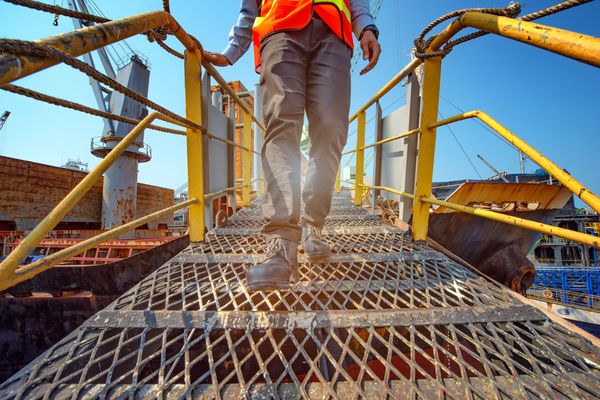From the shipping industry to offshore drilling and underwater welding, maritime careers are fraught with danger. Safety technology has significantly improved in the last couple of decades, and companies are more safety-conscious, but there is still plenty of opportunity for a maritime worker to get seriously injured on the job.
If you’ve been hurt while engaged in your maritime job duties, you have many rights under U.S. Maritime Laws. This collection of statutes includes The Jones Act, Maintenance and Cure, and the Death on the High Seas Act. These laws provide legal avenues for injured workers to file a suit, demanding fair compensation for their losses.
To secure compensatory damages in an accident, you and your Houston offshore accident attorney must first identify the liable party. Although this can be one of dozens of types of persons or entities, there are a few common culprits. One of the following is most likely the defendant in your claim.

Your employer
Offshore employers must protect their workers’ safety. This means ensuring that all safety equipment is physically present and in good working condition, the machinery and equipment have been well-maintained, and proper safety protocols are followed.
While there is always some chance of an accident on a ship, dock, or rig, employers still have a legal responsibility to maintain safe working conditions. Failure to do so can make them liable for any accident or injury that happens.
Some common examples of employer negligence include:
- Poorly maintained watercraft
- Improperly maintained equipment
- Inadequate staff to properly complete the job
- Poorly trained employees
- Lack of functional safety equipment
- Encouraging workers to cut corners with safety to complete jobs faster
- Overworking staff – accidents are much more likely with fatigued employees
Equipment, tool, and vessel manufacturers
Although employers are responsible for keeping tools, equipment, the rig, or the vessel in good working condition, sometimes the equipment itself needs to be fixed. If a manufacturer or product designer releases a product with a fundamental safety flaw, they can be liable for any harm that comes to the user.
Some common examples of product manufacturer liability include:
- Failure to install a kill switch
- Lack of proper guards or other protections
- Defects that occurred during the manufacturing process causing tool or equipment failure
- Defects in the overall design of the product, rendering it inherently dangerous
Platform, dock, and vessel owners and operators
The physical structure that you work on should be safe and well-maintained, and that responsibility ultimately lies with the owners. Whether you are an employee working on a structure someone else owns or an independent contractor; you can hold the property owner responsible for harm.
Operators also have a responsibility to ensure everyone’s safety. They must oversee the structure’s daily operations and inspect equipment function and maintenance. They also play a critical role in setting and maintaining safety standards.
A third party
Third parties that could be liable for your injury may include:
- A helicopter pilot transporting supplies
- Dredgers clearing the channel near where you’re working
- Tugboats bringing your vessel in or out of the harbor
- A subcontractor doing special repairs on your rig
The maritime industry survives on collaboration, but third parties who aren’t part of your organization may not be aware of safety protocols. They could negligently endanger you and many others.
Were you hurt in a maritime accident?
If you’re hurt because of someone else’s negligence, call Havens & Associates today at (713) 955-2215 for a free consultation. We’ll help identify the liable party or parties and fight to ensure you receive fair compensation.